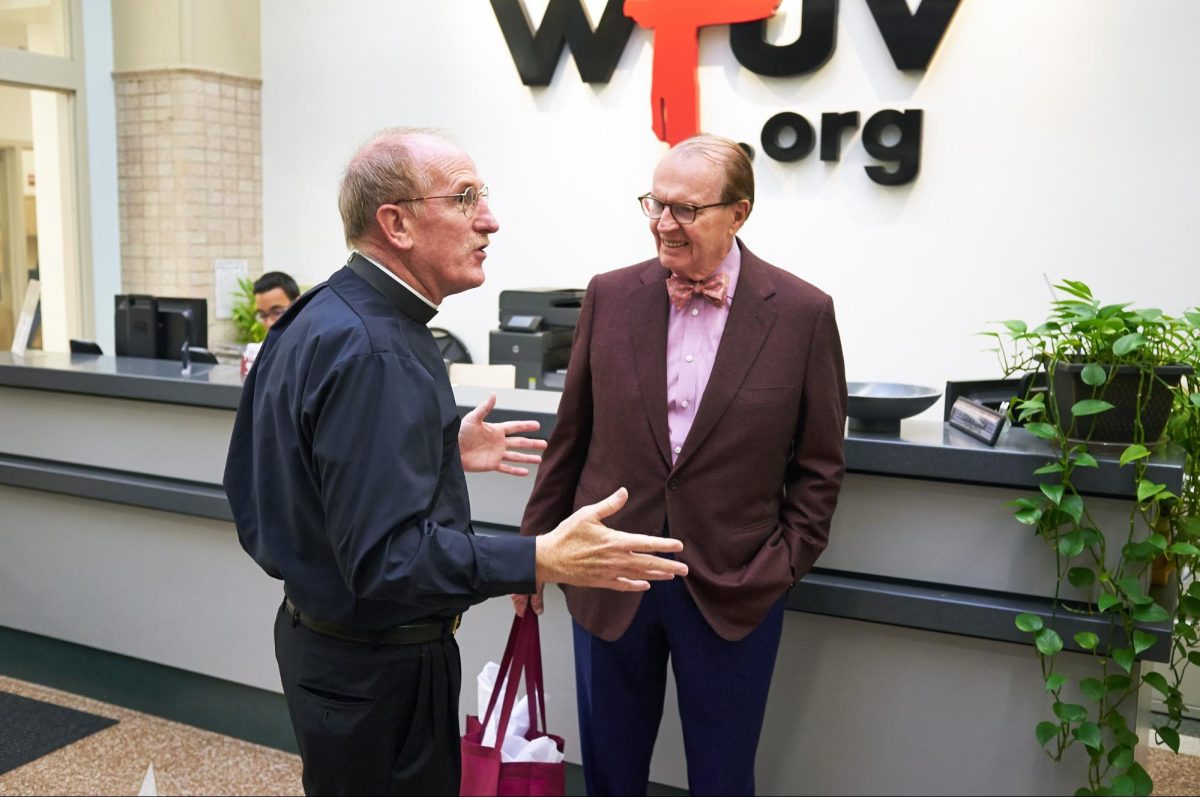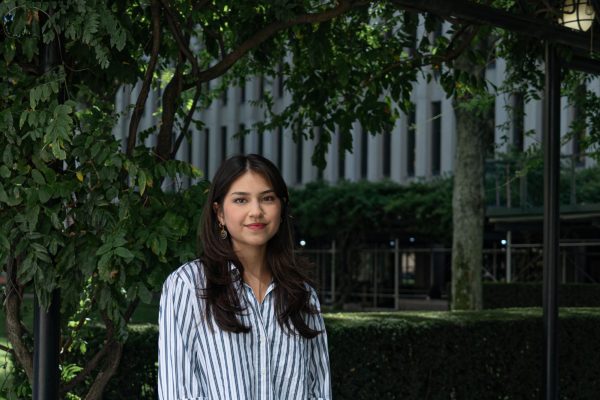Charles Osgood Wood III, the beloved CBS radio and television host and Fordham alumnus, died in his New Jersey home on Jan. 23. He was 91. According to his family, as reported by CBS News, his cause of death was dementia.
Osgood was an award-winning broadcaster known for his warmth and clever on-air sensibility. He anchored “The Osgood File,” a national morning radio segment that brought both hard news and upbeat commentary to American ears for over four decades.
He was also a familiar on-screen personality, hosting the “CBS News Sunday Morning” talk show from 1994 to 2016. He concluded every TV broadcast with an amusing and oft-quoted tagline: “Until then, I’ll see you on the radio.”
Osgood was born on Jan. 8, 1933 in the Bronx, New York. He spent his early years in Baltimore, Maryland, where he found refuge in baseball and radio during a perilous time in history. Osgood would later write a tender memoir about his childhood, entitled “Defending Baltimore Against Enemy Attack: A Boyhood Year During World War II.”
“Radio was my window on the world,” he said. “A world unto itself, a world more fantastic and more real than the world I saw every day in Baltimore.”
It was at Fordham that Osgood’s love of radio began to take professional shape. He came to the Rose Hill campus in 1950 and quickly found WFUV, the university’s noncommercial radio station that had been established just three years prior. He jumped in as a volunteer, playing music and commentating on the air alongside peers Jack Haley Jr. and Alan Alda.
“He was clearly someone who never forgot where he came from, and held Fordham and WFUV close to his heart.”George Bodarky, Fordham College at Rose Hill ’93, a former News Director at WFUV
In a 1994 New York Times interview, Osgood remarked fondly on his experience at WFUV, saying he and his friends often “spent more time at the station than in classes.”
Today, WFUV presents the annual Charles Osgood Lifetime Achievement Award in Broadcast Journalism to a broadcast journalist of the highest caliber. Past honorees include Jane Pauley, the current host of “CBS News Sunday Morning” who assumed the role following Osgood’s retirement.
“Charlie was a big supporter of WFUV and was always giving of his time to help mentor our young journalists,” George Bodarky, Fordham College at Rose Hill ’93, a former News Director at WFUV who was well-acquainted with Osgood, said. “He was clearly someone who never forgot where he came from, and held Fordham and WFUV close to his heart.”
“From the bottom of our hearts, thank you for welcoming him into your homes on Sundays to share stories, and to highlight the better parts of humanity. He’ll see you on the radio.”statement from Osgood’s family
After graduating in 1954 with a bachelor’s degree in economics, Osgood briefly toured as the emcee and pianist for the U.S. Army band. He went on to be an announcer at several radio stations in Washington D.C. and later the general manager of a TV station in Hartford, Connecticut.
Osgood returned to New York in 1963 to join the ranks at the ABC Radio Network, where he gained his first formal journalistic experience as a general assignment reporter. This was where he christened his professional name, Charles Osgood — a measure taken to avoid being confused with another Charles Wood at the network.
Eventually, he landed at CBS in 1967, where he fulfilled a multitude of roles in radio and TV. In 1994, he succeeded Charles Kuralt, the first host of “CBS News Sunday Morning,” and would go on to hold the title for 22 years. The program received its second George Foster Peabody award with Osgood at the helm, being lauded for its upstanding news coverage and sensitivity toward a breadth of topics.
Some notable moments in Osgood’s CBS tenure include interviews with Keith Haring, Julia Child, Chuck Berry and Andrew Wyeth. His achievements on the program earned him four Emmy awards, one of them being for lifetime achievement.
While his on-screen prowess proved career-defining, Osgood always maintained his love of audio — the medium that he grew up with, and the one in which he first found his footing. His distinctive voice and penchant for rhyme is encapsulated in the 2008 animated adaptation of Dr. Seuss’ “Horton Hears a Who,” which he narrated.
At and outside of work, Osgood was a man full of heart, generosity and erudition. A lifelong musician, he was poetic by nature and often displayed it in song or spoken word.
“Genuine is the greatest adjective I think that can be used to describe him,” Bodarky said. “He was as authentic a broadcaster as they come. And a gem of a man off camera.”
Osgood is survived by his wife and former CBS colleague Jean Crafton, their five children and three grandchildren. In a statement to CBS, they wrote, “From the bottom of our hearts, thank you for welcoming him into your homes on Sundays to share stories, and to highlight the better parts of humanity. He’ll see you on the radio.”


